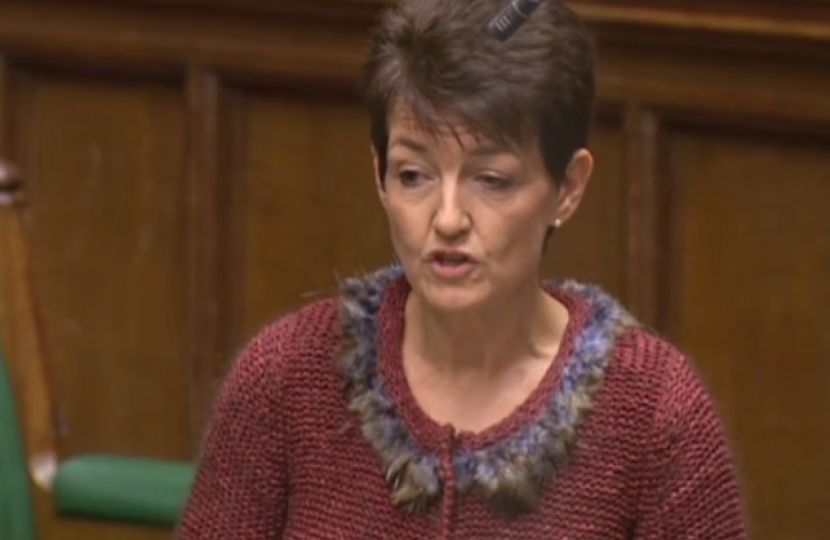
On Thursday 15th December during a House of Commons debate, Jo Churchill MP raised her concerns for local and rural broadband provisions in a debate concerning the Government’s Broadband Universal Service Obligation (BUSO) with the Minister for Digital and Culture, Matthew Hancock MP. Intending to help deliver on the Government’s target of 100% broadband connectivity across the UK, the scheme gives residents the right to request an affordable broadband connection at a minimum speed.
Speaking in the debate, Jo Churchill highlighted the severe lack of connectivity in Suffolk, saying: ‘Given Ofcom writes about some of our postcodes, “Ofcom does not currently provide any information on this because the speeds are so poor,” I think we are more than aware that work needs to be done on this.’
She went on to say: “A recent survey that I have collected in the last six weeks, which I have sent to the Minister, shows that 55% of people do not have adequate broadband coverage.”
Mrs Churchill then called on the Government to act: “As we move forward, could we show a little bit of initiative, locking enterprise zones into hard-to-reach villages, such as, for example, Creeting, out of the back of Stowmarket enterprise zone and Moreton Hall out of the back of Bury St Edmunds? Could we also take up the churches’ offer of masts on churches? Mostly, could the Minister consider Suffolk, with the A143, the road with the worst coverage and the most not spots, becoming a pilot and thereby the true exemplar of how to do it?”
Speaking after the debate, Mrs Churchill said: “It is disappointing that, despite leading Europe in delivering broadband speeds, coverage and competition, the UK continues to suffer poor connectivity, especially in rural communities.
However, as I said in the debate, nobody minds how connectivity delivered to them on their phones or by broadband, they just want action. The diversity of the just under 10,000 rural homes in my constituency without broadband requires a more innovative and community approach, and that is what I urged the Government to consider further.
I have argued before and maintain that broadband is the fourth utility as residents are now expected to do more online including pay their taxes or register their car. I am determined to ensure my constituents can access sufficient broadband and demand their right to connectivity.”